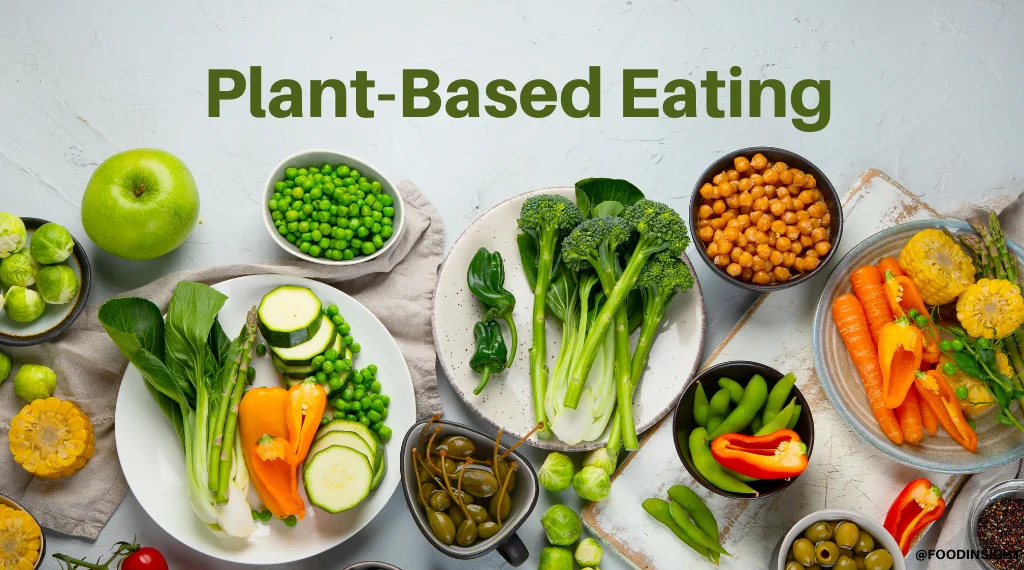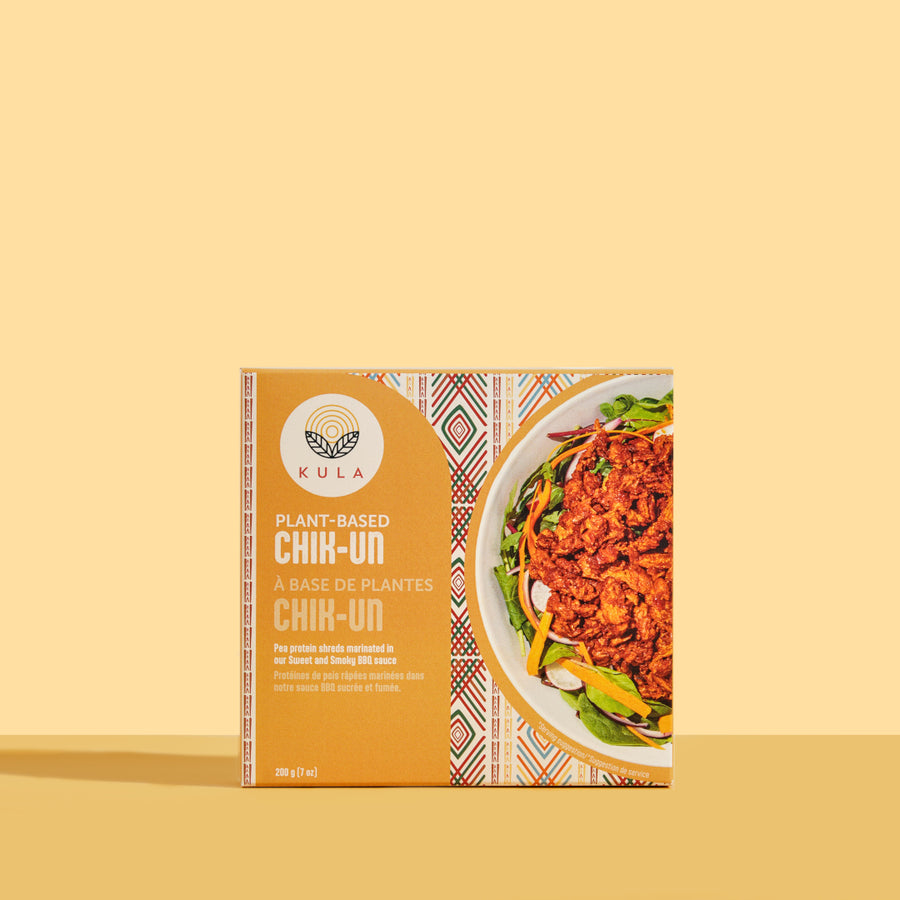Plant Based Chicken Meal Prep Ideas for Busy Professionals
Plant Based Chicken Meal Prep Ideas for Busy Professionals
Blog Article
Everything About Healthy And Balanced Food: Benefits of Embracing Plant Based Alternatives
The discussion bordering plant-based diets has gotten significant interest over the last few years. Several individuals are exploring the possible health and wellness advantages, dietary advantages, and environmental impacts connected with these nutritional options. As individuals become much more familiar with their food's influence on well-being and sustainability, questions occur regarding the usefulness of embracing such a lifestyle. What specific modifications can one expect, and how might these choices improve not just individual wellness yet likewise the earth's future?
Recognizing Plant-Based Diets
Although many individuals link plant-based diet plans primarily with vegetarianism or veganism, these diet regimens can encompass a wide variety of eating patterns that prioritize whole, minimally refined plant foods. Such diet regimens frequently consist of fruits, vegetables, whole grains, beans, seeds, and nuts, while restricting or eliminating pet items. This adaptability permits people to tailor their nutritional choices according to personal choices and dietary demands. Some might embrace a primarily plant-based diet plan while still occasionally consuming meat or dairy products, often referred to as a flexitarian technique. The emphasis stays on including more plant foods, which can result in a varied selection of tastes and dishes. Understanding these different interpretations of plant-based eating is crucial for valuing its accessibility and allure in modern food society.
Health Conveniences of Plant-Based Foods
The wellness advantages of plant-based foods are substantial, using a nutrient thickness benefit that sustains overall well-being. Research suggests that these foods can boost heart wellness and play a vital role in reliable weight administration. By including a lot more plant-based options, people may improve their nutritional choices and promote long-lasting health and wellness.
Nutrient Density Benefit
Nutrient density plays a vital role in the health and wellness advantages of plant-based foods, making them a compelling option for those seeking a well balanced diet plan. Plant-based foods, such as fruits, vegetables, beans, nuts, and whole grains, are usually rich in important vitamins, minerals, and antioxidants while being lower in calories. This high nutrient thickness allows people to consume less calories while still meeting their dietary needs. Furthermore, these foods are packed with dietary fiber, advertising digestion health and wellness and aiding in weight monitoring. By incorporating nutrient-dense plant-based options, customers can improve their general health and wellness, sustain their body immune systems, and decrease the threat of chronic diseases. Ultimately, the nutrient thickness of plant-based foods highlights their relevance in a health-conscious way of life.
Heart Health And Wellness Enhancement

Weight Administration Support
Along with promoting heart wellness, a plant-based diet regimen can considerably aid in weight monitoring. This nutritional strategy emphasizes entire foods such as fruits, veggies, legumes, nuts, and whole grains, which are usually reduced in calories and higher in fiber contrasted to animal-based items. The high fiber material helps increase satiety, lowering general calorie intake. Plant-based diet regimens are commonly rich in crucial nutrients while reduced in harmful fats, making it much easier to maintain a healthy weight. Research indicates that people that take on a plant-based lifestyle often tend to have lower body mass indexes (BMIs) and experience more successful fat burning compared to those that eat meat-heavy diet regimens. Welcoming plant-based choices is a tactical option for efficient weight administration.
Nutritional Value of Plant-Based Ingredients
Plant-based active ingredients are rich in essential nutrients, providing a varied range of vitamins, minerals, and antioxidants that contribute to general health and wellness. A contrast of protein sources reveals that while animal items are typically viewed as premium, many plant-based alternatives give sufficient protein and various other valuable substances. Understanding the nutritional worth of these components can assist people make informed dietary choices.
Necessary Nutrients in Plants
Nutrient-rich active ingredients located in plants use a diverse selection of important vitamins and minerals that add significantly to total health. These components are rich in vitamins A, C, and K, which support immune feature, vision, and blood clot, respectively. On top of that, plants give essential minerals such as magnesium, potassium, and calcium, crucial for heart wellness, muscle feature, and bone strength. The presence of fiber in plant-based foods help digestion and promotes a healthy and balanced intestine microbiome. Anti-oxidants, discovered generously in veggies and fruits, aid combat oxidative stress and minimize inflammation. Lots of plant foods are low in calories yet high in nutrients, making them a superb option for those looking for to preserve a healthy weight while making sure perfect nutrient consumption.

Comparing Protein Sources
Healthy protein sources vary substantially in their dietary accounts, with plant-based ingredients supplying distinct benefits. Unlike pet healthy proteins, which typically include hydrogenated fats and cholesterol, plant healthy proteins often tend to be reduced in these harmful parts. Legumes, nuts, seeds, and entire grains are rich in necessary amino acids, fiber, vitamins, and minerals. Lentils give high healthy protein material alongside significant iron and folate, while quinoa is a full protein, providing all nine vital amino acids. In addition, plant-based proteins are commonly accompanied by anti-oxidants and phytochemicals that sustain general health. The change to plant-based healthy protein resources not only boosts nutritional intake however additionally aligns with lasting dietary techniques, reducing environmental influence and promoting long-term wellness advantages.
Ecological Effect of Plant-Based Eating
As recognition of environment modification expands, numerous people are exploring lasting dietary choices that can considerably decrease their ecological impact. Plant-based eating has become a considerable factor to minimizing greenhouse gas discharges, which are largely related to animals manufacturing. The cultivation of fruits, grains, vegetables, and beans normally needs fewer sources, such as water and land, contrasted to animal farming. Additionally, plant-based diet regimens can cause decreased deforestation, as much less land is needed for grazing animals or expanding animal feed. By shifting in the direction of plant-based options, redirected here consumers can support biodiversity and promote much healthier environments. On the whole, embracing plant-based consuming not only benefits personal health and wellness yet also represents a crucial action towards ecological sustainability and conservation efforts.
Conquering Common Misconceptions
While lots of people recognize the benefits of a plant-based diet, several mistaken beliefs usually hinder them from totally accepting this way of life. A common belief is that plant-based diet regimens lack enough protein; however, countless plant sources, such as beans, nuts, and tofu, provide adequate protein. In addition, some think that this diet is pricey, when actually, staples like beans, rice, and seasonal veggies can be rather inexpensive. An additional misconception is that plant-based eating is extremely restrictive, whereas it actually supplies a varied array of foods and flavors. Several fret that a plant-based diet may lead to shortages, yet with proper preparation, people can obtain all necessary nutrients, consisting of minerals and vitamins, while taking pleasure in a wide selection of scrumptious meals. Large Tips for Transitioning to a Plant-Based Way of living
Making the change to a plant-based way of life can be an enriching experience, though it commonly calls for some assistance to browse the first modifications. First, people are motivated to start gradually, integrating even more fruits, vegetables, vegetables, and whole grains right into their dishes while decreasing meat and dairy consumption. Meal planning is vital; preparing an once a week menu can aid alleviate the adjustment and prevent last-minute undesirable choices. Exploring cooking techniques and new recipes can also keep and boost the experience exhilaration regarding plant-based consuming. Additionally, signing up with support groups or communities can provide motivation and share valuable pointers. Finally, staying informed about nutrition guarantees well balanced meals, protecting against deficiencies while cultivating a healthy and balanced, gratifying plant-based way of life.
Delicious Plant-Based Dish Concepts
Checking out scrumptious plant-based dish concepts can motivate people to embrace a more nourishing diet plan. One prominent option is a hearty quinoa salad, including cherry tomatoes, cucumber, and a vibrant lemon-tahini dressing. An additional favorite is a tasty lentil stew, packed with carrots, celery, and aromatic natural herbs, ideal for a reassuring supper. For breakfast, overnight oats made with almond milk, chia seeds, find more information and covered with fresh berries give a nutritious start to the day. In addition, a lively veggie stir-fry with tofu and a range of vibrant veggies can be a fast yet pleasing meal. Creamy avocado salute on whole-grain bread, sprinkled with seeds and flavors, offers a basic yet tasty snack. These meals showcase the range and richness of plant-based consuming.

Frequently Asked Inquiries
Can a Plant-Based Diet Supply Enough Protein?
The concern of whether a plant-based diet can supply enough healthy protein is typical. Various resources, including vegetables, nuts, seeds, and whole grains, can meet protein requires effectively, sustaining a healthy and balanced diet for people.
Are Plant-Based Diet Plans Appropriate for Children?
The viability of plant-based diet plans for kids depends upon mindful planning. Ample nutrients must be guaranteed, including minerals, healthy proteins, and vitamins. With appropriate assistance, such diet plans can support healthy growth and growth in kids.
Just how Do I Eat Out on a Plant-Based Diet regimen?
Eating in restaurants on a plant-based diet involves seeking restaurants with varied food selections, requesting alterations, and exploring vegan-friendly choices. Planning ahead and communicating dietary preferences can boost the dining experience while maintaining nutritional options.
What Are Typical Irritants in Plant-Based Foods?
Common allergens in plant-based foods consist of soy, gluten, nuts, and seeds - BBQ Sauces. People complying with click to read more a plant-based diet regimen should recognize these allergens and check out tags very carefully to avoid negative reactions and guarantee risk-free intake
Can Plant-Based Diets Aid With Weight Loss?
Research shows that taking on a plant-based diet plan might promote weight loss due to its generally lower calorie thickness and higher fiber material. This mix can improve satiety, assisting individuals handle their calorie consumption effectively. Lots of individuals connect plant-based diet plans mostly with vegetarianism or veganism, these diet plans can incorporate a wide variety of eating patterns that focus on entire, minimally refined plant foods. Nutrient density plays a vital function in the health advantages of plant-based foods, making them a compelling selection for those looking for a balanced diet plan. Plant-based diet plans have been revealed to noticeably boost heart wellness, as they typically have aspects that support cardiovascular function. In enhancement to promoting heart wellness, a plant-based diet can significantly help in weight administration. An usual idea is that plant-based diet regimens do not have adequate protein; however, countless plant resources, such as legumes, nuts, and tofu, give adequate healthy protein.
Report this page